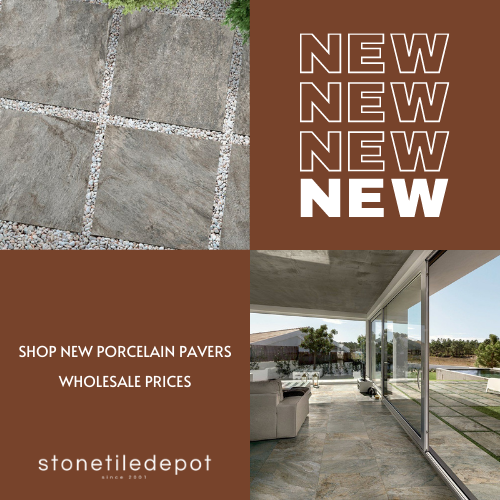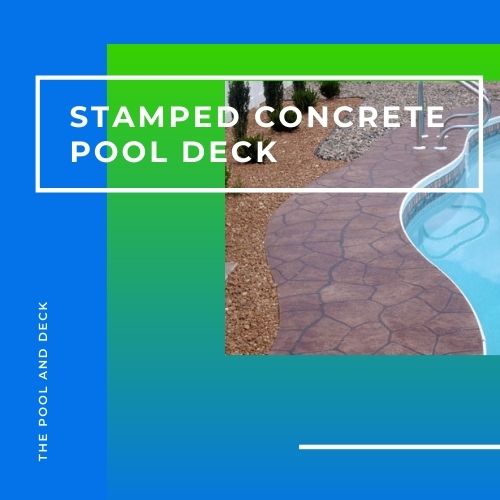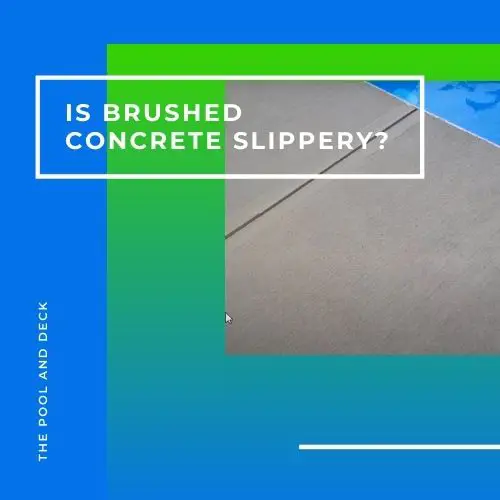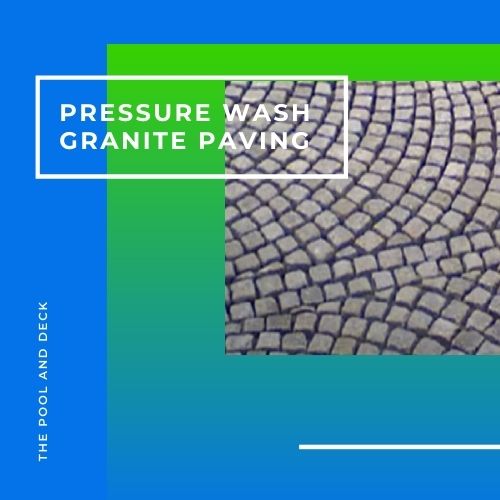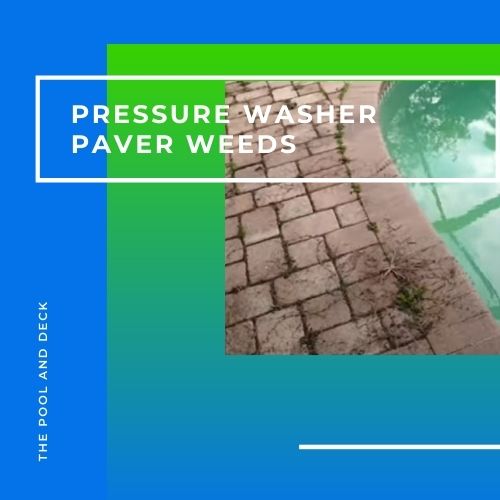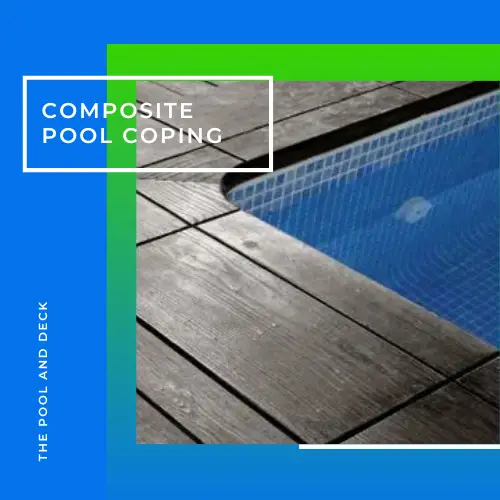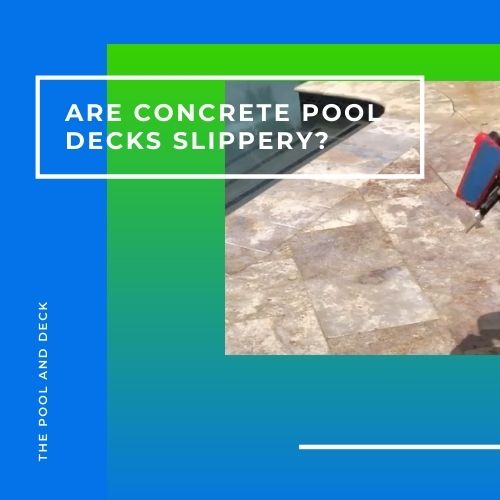Do Granite Pavers Need To Be Sealed? (Is It Helpful?)
thepoolanddeck.com is a participant in the Amazon Services LLC Associates Program, an affiliate advertising program designed to provide a means for sites to earn advertising fees by advertising and linking to Amazon.com . The website is also an affiliate of a few other brands. The affiliate links never increase your purchase price. We do appreciate your support. Thank you very much!
Table of Contents
Do Granite Pavers Need to Be Sealed?
Your decision to use granite pavers on your pool coping and pool deck is an excellent one. Granite is one of the most hard wearing natural stones available. Granite pavers can withstand both foot & vehicular traffic. So, you could use granite pavers on patios, walkways or even driveways. But, do granite pavers need to be sealed?
Granite is non-porous and impervious to water. Granite pavers, therefore, need not be sealed. However, you can make granite pavers stain resistant by sealing them. On the flip side, sealed granite pavers will be more slippery. Make sure to use a non-slip additive in the sealer.
Granite, not only, has killer looks but is also super hard, scratch & weather resistant and extremely durable natural stone. These qualities, of course, come at a price!
4 Popular Stone Pavers
Granite, Marble, Limestone and Travertine are the four most popular pavers when it comes to pool decks and coping. However, they differ from each other as they were formed in the earth’s crust, through different processes.
Geologists classify most of the rocks as sedimentary, metamorphic or igneous.
- Granite is an igneous rock and is mostly composed of silica (quartz) and alumina. In composition it is different from the three above. Granite was formed when hot molten magma within the earth’s crust cooled and solidified.
- Marble is a metamorphic rock and is mostly composed of calcite. Marble started off as limestone. Limestone buried deep into the earth, changed from a sedimentary rock to a metamorphic rock under severe heat & pressure, to become marble.
- Limestone is a sedimentary rock and is mostly composed of calcite from biological activity. Limestone was formed when the shells of marine organisms deposited on the ocean floor and compressed by layers above.
- Travertine is also a sedimentary rock and is mostly composed of calcite from volcanic activity. Travertine was formed when rivers rich in minerals or hot springs evaporated and the residue was compacted by layers of earth above it.
Igneous rocks like granite are the least porous and sedimentary rocks like travertine are the most porous.
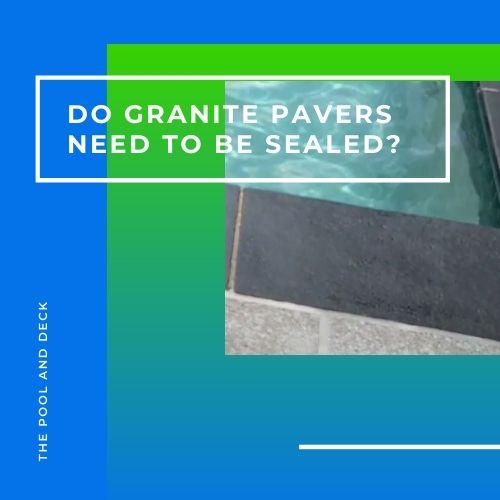
What Happens If You Don’t Seal Granite Pavers?
Granite is one of the hardest, toughest and most non-porous natural stones available. It really does not require sealing. The only reason to seal granite pavers is to prevent them from getting stained.
It makes sense to seal granite pavers on driveways. Your driveway will not look pretty with the black marks from oil spills from the car.
For the same reason, it makes sense to seal granite pavers on the pool deck that will be used for alfresco dining, BBQ or a pool side bar. There are bound to be accidental spills.
You do not need to worry about stains if the granite pavers have been sealed. Cleaning sealed pavers is a breeze too!
However, for certain areas around the pool I recommend that you use textured granite pavers and not seal them. At least not with topical sealers.
These are areas of the pool deck that are in close proximity to the pool and the pool coping. They will get wet and remain wet as long as the pool is being used.
Granite pavers that have been sealed or have a polished finish are sure to get slippery when wet.
What Type of Paver Sealer Is Best for Granite?
There are three types of sealers for natural stone pavers:
Enhancing Stone Sealers:
Enhancing Stone Sealers penetrate and bring out the natural vibrant colors locked within the stone. They work best with travertine and limestone pavers as they are more porous.
Impregnating Stone Sealers:
Impregnating Stone Sealers are purely functional. Like enhancing sealers, they penetrate into the pores of the natural stone paver or tile, solidify and block them. Water, stains or harmful chemicals can not enter the pores.
Such sealers do not alter the look or texture of the stone paver.
A textured granite paver therefore continues to look the same and continues to be slip resistant. Penetrating sealers will be stain resistant to a degree as the stain will not be able to penetrate the pores (already blocked by the sealer).
I recommend Miracle Sealants 511QT6 511 Impregnator Sealer. It is very effective at protecting against water, stains & slippage.
Topical Stone Sealers:
Topical Stone Sealers penetrate a bit, but mostly form a glossy or egg-shell, protective film on the granite surface. They impart a rich lustrous look to the granite paver and will make it stain resistant.
For a wet look I recommend Foundation Armor AR350 Solvent Based Acrylic Wet Look Concrete Sealer. However, topical sealers smoothen out the texture of the granite making it slippery.
If you expect the sealed area to be wet most of the time, then better add a non-slip additive to the sealer. There are several popular brands such as SureCrete’s SureGrip, H&C SharkGrip or Matcrete’s Rhino Grip.
How Do You Clean and Seal Granite Pavers?
You should apply the penetrating sealer just after installing the granite pavers. Penetrating sealer will last around 10 years as it penetrates into the granite pores. Apply at least two coats with a pump sprayer.
Topical sealers will typically last 5 years indoors and 3 years outdoors. Topical sealers get abraded by the foot traffic on it. So make sure to apply fresh coats when you notice that the pavers are looking dull and lifeless.
Existing pool deck should be cleaned with a high pressure washer. Use bleach or diluted muriatic acid and a hard bristled brush to get rid of stains. Give a final rinse and let the deck dry.
The sand between the pavers must be topped up before sealing. You must use polymeric sand, such as Alliance Gator Maxx G2 Intelligent Polymeric Sand for Paver and Natural Stone, rather than regular sand.
Choose a warm day to apply the sealer. Make sure that the surface is dry before application. Apply the sealer over a 50-60 square feet area using the backpack pump sprayer. Then use a nap roller to back roll the sealer while still wet.
Apply the second coat in the same way but only after the first coat is touch dry.
Thank you very much for reading the post. I do hope you found it informative and helpful.

